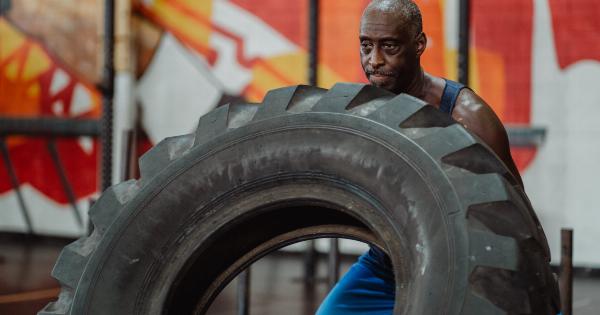Strong bones are essential for overall health and vitality. As we age, our bone density naturally decreases, making us more prone to fractures and osteoporosis.
However, with a dedicated workout routine, you can strengthen your bones and maintain their density for life. In this workout guide, we will explore various exercises and lifestyle tips that can help you achieve strong bones and improve your quality of life.
Understanding Bone Health
Before diving into the workout guide, let’s understand the basics of bone health. Our skeletal system is constantly undergoing a process called bone remodeling, where old bone tissue is broken down and replaced by new bone tissue.
This process ensures the maintenance of bone density and strength.
Bone health depends on a variety of factors, including nutrition, physical activity, hormonal balance, and genetics. Adequate intake of calcium, vitamin D, and other essential nutrients is crucial for maintaining strong bones.
Additionally, regular exercise and weight-bearing activities help stimulate new bone formation and improve bone density.
The Best Exercises for Strong Bones
1. Weight-bearing exercises: Activities that require your bones and muscles to support your body weight are excellent for bone health. These include walking, jogging, stair climbing, dancing, and playing tennis.
Aim for at least 30 minutes of weight-bearing exercise most days of the week.
2. Strength training: Resistance exercises like weightlifting and resistance band workouts help build and strengthen muscles, which in turn puts stress on your bones.
Focus on exercises that target major muscle groups, such as squats, lunges, deadlifts, and bench presses. Aim for two to three days of strength training per week.
3. Balance and stability exercises: As you age, falls become a significant risk factor for fractures. Incorporating balance and stability exercises into your routine can help improve your coordination and prevent falls.
Examples include yoga, tai chi, and single-leg balance exercises.
4. Flexibility exercises: While not directly related to bone health, flexibility exercises like stretching and yoga can improve your overall mobility and reduce the risk of injuries.
Include gentle stretching exercises in your routine, focusing on major muscle groups.
Tips for a Bone-Healthy Lifestyle
1. Eat a calcium-rich diet: Calcium is the primary building block of bones. Include dairy products, leafy greens, fortified cereals, and almonds in your diet to ensure an adequate calcium intake. Consider supplements if your diet falls short.
2. Get enough vitamin D: Your body needs vitamin D to absorb calcium. Spend time in the sun, consume fatty fish, fortified dairy products, and consider vitamin D supplements if necessary.
3. Avoid smoking and excessive alcohol consumption: Smoking and excessive alcohol intake can weaken your bones and increase the risk of fractures. Quit smoking and limit alcohol to promote healthy bones.
4. Maintain a healthy body weight: Being underweight or overweight can negatively impact bone health. Aim for a healthy body weight through a balanced diet and regular exercise.
5. Stay hydrated: Water plays a crucial role in many bodily functions, including bone health. Stay well-hydrated throughout the day by consuming adequate amounts of water and other fluids.
When to Consult a Doctor
If you have existing medical conditions or concerns about your bone health, it’s essential to consult a healthcare professional.
They can assess your specific needs and provide personalized recommendations for exercise, nutrition, and supplementation.
Additionally, women over the age of 50 and men over the age of 70 should consider getting a bone density test to evaluate their current bone health and determine if any interventions are necessary.
Conclusion
Strong bones are an integral part of a healthy and active lifestyle.
By following a well-rounded workout routine that includes weight-bearing and strength exercises, along with a bone-healthy lifestyle, you can significantly improve your bone density and reduce the risk of fractures. Remember to consult with professionals if needed and make bone health a priority throughout your life.































